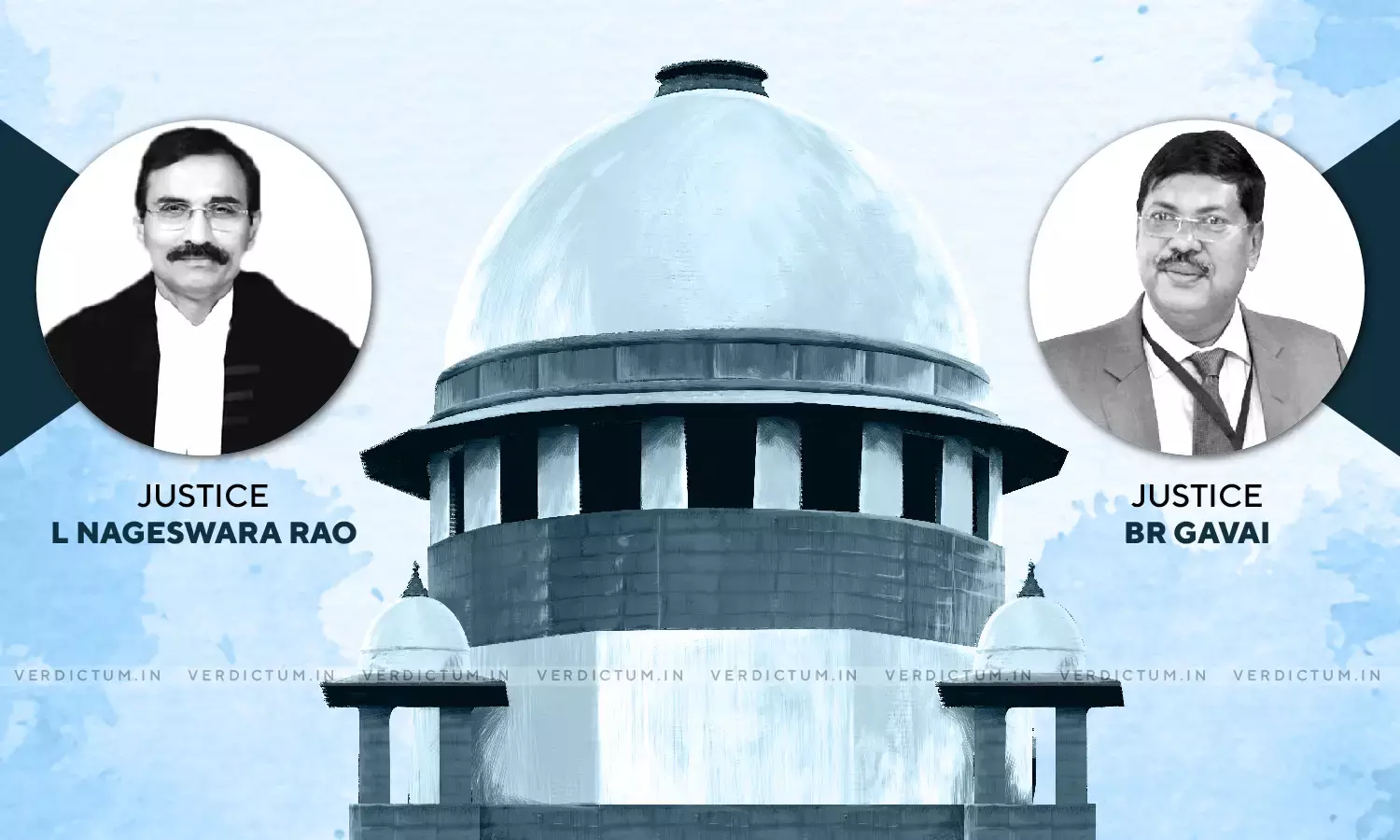In A Suit For Partition, Position Of Plaintiff And Defendant Can Be Interchangeable - Supreme Court

A two-judge bench of the Supreme Court comprising of Justice L Nageswara Rao and Justice BR Gavai has observed that in a suit for partition, the position of the Plaintiff and the Defendant can be interchangeable.
In this case, a suit for partition was filed by Plaintiff Nos. 1 to 8, who are Respondent Nos. 1 to 8 before the Prl. Munshiff at Kolar - Trial Court, for partition and separate possession of the suit properties. The said suit came to be decreed and the Appellant was directed to render accounts in respect of the receipt and expenditure of the money incurred by him on the suit schedule properties for the period from the date of the suit till the date of effecting actual partition of the suit schedule properties. It was further held that the Appellant was liable to divide the profits earned from the properties in favor of Defendant Nos. 2 and 3 to Plaintiff Nos. 2 and 3 as per their respective shares. The Appellant filed an appeal before the Prl. Civil Judge at Kolar - First Appellate Court.
The said appeal was allowed which was challenged before the Karnataka High Court which set aside the judgment and order passed by the First Appellate Court and restored the judgment and decree passed by the Trial Court. The judgment passed by the High Court was challenged before the Supreme Court where the Court found that the High Court had allowed the appeal without framing the questions of law as required under Section 100 of the Code of Civil Procedure and remanded the matter to the High Court for disposal afresh in accordance with the law. The appeal was filed by the Appellant before the Supreme Court.
Counsel Shri Naresh Kaushik, appeared on behalf of the Appellant while Counsel, Shri Girish Ananthamurthy, represented the Respondents before the Apex Court.
The primary issue in this case was –
Whether the Division Bench of the Karnataka High Court had framed questions of fact or questions of law.
It was contended by the Appellant that the trial court had decreed the suit only in favor of Plaintiff Nos. 2 and 3. As such, in fact, the trial court held that Plaintiff Nos. 4 to 8 were not entitled to any share in the suit schedule properties of Mohiyuddin Pasha. The said judgment and decree of the trial court was not challenged by Plaintiff Nos.4 to 8. The same was only challenged by the Appellant though on remand by this Court, the High Court framed the questions of law, they could not be construed to be questions of law inasmuch as all the said questions pertain to the appreciation of evidence.
On the other hand, Respondent submitted that the trial court had rightly appreciated the evidence. However, it was argued that the First Appellate Court had reversed the same on the basis of conjectures and surmises. The High Court had therefore rightly interfered with the same while reversing the judgment of the First Appellate Court. It was further claimed that in a partition suit, all the parties stood on the same pedestal and every party was a Plaintiff as well as a Defendant.
This Court observed that in the cases of Bhagwan Swaroop v. Mool Chand read with Dr. P. Nalla Thampy Thera v. B.L. Shanker it was held that in a suit for partition, the position of the Plaintiff and the Defendant could be interchangeable. According to the Court, each party adopts the same position as the other parties. It had been further held that so long as the suit was pending, a Defendant could ask the Court to transpose him as a Plaintiff and a Plaintiff could ask for being transposed as a Defendant.
Moreover, the Court noted that in the case of Chandramohan Ramchandra Patil v. Bapu Koyappa Patil the trial court had granted relief even to the nonappealing Plaintiffs and made an adverse order against all the Defendants and in favor of all the Plaintiffs. Here, merely because the trial court had not granted relief in favor of Plaintiff Nos.4 to 8, would not bar the High Court from allowing their claim.
With respect to the contention that the Karnataka High Court, in the second appeal, had framed questions of law, which were, in fact, not questions of law but questions of fact, the Supreme Court referred to the case of Municipal Committee, Hoshiarpur v. Punjab State Electricity Board to observe that there was no prohibition on entertaining a second appeal even on a question of fact provided the Court was satisfied that the findings of fact recorded by the courts below stood vitiated by non-consideration of relevant evidence or by showing an erroneous approach to the matter i.e. that the findings of fact were found to be perverse.
Thus, the Supreme Court did not find any merit in this appeal and accordingly dismissed it.
Click here to read/download the Judgment

